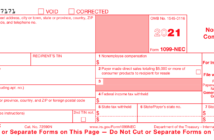In this article we discuss how to determine your eligibility to deduct your vacation rental property losses for income tax purposes. If you qualify, the losses you create out of your rental activity can be deducted from your other income.
Vacation property rentals come with some tax advantages that likely you are aware. When you rent a property out, in most cases it is treated like a business where all your expenses are matched against your income. Generally, passive income losses are matched against passive income losses and the excess losses are not deductible in the year they occur. There are some exceptions to this rule, the primary one of which that affects vacation real estate owners.
There are also other deductions (non-cash expenses) that can increase the likelihood that you will report an accounting loss even if your cash flow says otherwise. These include charges such as depreciation and vehicle expenses. Under some circumstances, you can deduct this loss against your other income in the same tax year they occurred.
We discuss in this article how to determine your eligibility.
First, Some Definitions
The language that is used by the IRS to define rental activity can be confusing. Here are a few definitions. First, rental activity is considered passive income if you are renting real estate only and are not offering other services which might make it non-passive activity. Most vacation landlord rental activity is considered passive, unless they use the property for personal use or are running it professionally/offer special services in addition.
Second, how you manage the property has its own test that is called active participation. This describe how you manage the activities that are required to support your rental activity.
It is easy to mix up these terms depending on the context because they are used in two distinct ways.
Real Estate Rental Activity
If you renting vacation real estate, it is likely that you will need to report your rental activity on your tax return in the following manner. When you file your tax return, you are classifying your property as rental real estate with active participation. This covers the majority of small landlords who own a few properties. This is an exception to the IRS passive loss rules. This covers landlords who have some other kind of day job income, but who are renting real estate on the side. Real estate activity is not their prime source of income.
What the active participation test means is to differentiate your real estate activity from real estate investments, such as a real estate investment trust (REIT). An investment in a REIT doesn’t pass the participation test because you have no hand in managing the real estate, such as you would be with an individual property your own (either in whole or part) and direct its management outright. We own units in a publicly traded REIT called Realty Income, which is arguably the highest quality investment of its kind in the public markets. However, this investment is not considered real estate rental activity; it is reported on Schedule C, just like other stock and income investments.
In the IRS publication Residential Real Estate Property this is language used to determine active participation:
You actively participated in a rental real estate activity if you (and your spouse) owned at least 10% of the rental property and you made management decisions or arranged for others to provide services (such as repairs) in a significant and bona fide sense. Management decisions that may count as active participation include approving new tenants, deciding on rental terms, approving expenditures, and other similar decisions.
There are additional criteria you need to fulfill in order to qualify. When you qualify, this opens up the opportunity to deduct up to $25K of rental losses on your tax return, subject to income limitations. This is the list:
- Active participation, as discussed above
- Personal use of property 14 days or less, or 10% of total rental days (whichever is greater) – 100% passive rental activity.
- Own at least 10% of the property.
If you used the property for personal use above the cutoff listed above, your losses will still be calculated however, you would prorate them according to the rental use versus the personal use. This excessive personal use eliminates your ability to deduct your losses against your non-passive income for the tax year. The losses are not lost, they will be carried over to future tax years where they can be realized against future income or when the property is sold.
If you meet all these tests, you may still not be able to deduct losses if your income is too high. The limitation of losses occurs between 100-150K of adjusted gross income (where proration occurs) and then is eliminated in entirely above 150K.


